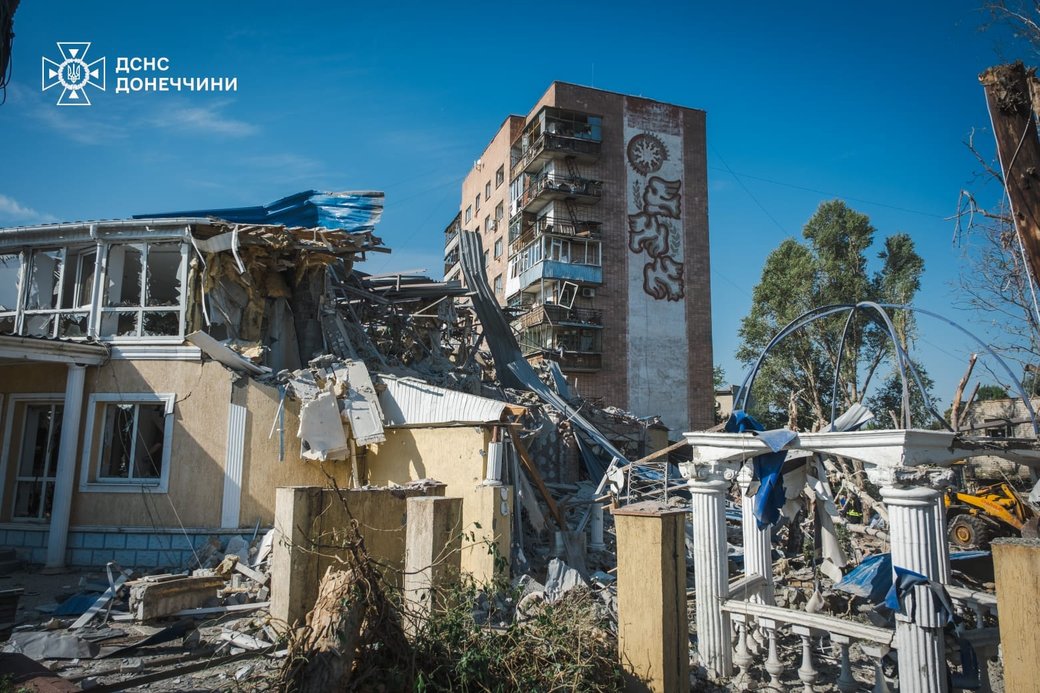The IPI global network strongly condemns Russia’s latest attack on a hotel housing journalists in Ukraine. The attack took place late on Saturday in Kramatorsk, in eastern Ukraine’s Donetsk region. Ryan Evans, a security adviser working for Reuters, was killed. Three journalists, two of whom also worked for Reuters, were wounded in the incident.
In a statement, Reuters said that its journalists staying at the hotel were part of a six-person team covering the war in Ukraine. One of the two injured Reuters journalists is in serious condition, the agency noted. Aside from Ryan Evans, Reuters did not reveal the identities or other details related to those present on-site.
According to Ukrainian officials, the Hotel Sapphire was “probably” struck by an Iskander-type missile and “destroyed” at around 10.30 p.m. local time. Eight casualties were reported in total, the Donetsk regional prosecutor’s office later reported. Russian authorities are not known to have commented on the incident.
Evans, a former British soldier, had been working with Reuters since 2022 and advised its journalists on safety around the world including in Ukraine, Israel and at the Paris Olympics. He was 38.
“We send our deepest condolences and thoughts to Ryan’s family and loved ones. Ryan has helped so many of our journalists cover events around the world; we will miss him terribly,” Reuters said in its statement.
“Literally just one second”
An additional account of the Russian missile strike was provided by Monika Andruszewska, a Polish journalist who reported for the Tygodnik Powszechny weekly: “It’s hard to describe that second, because this [strike] lasted literally just one second,” Andruszewska told online outlet Onet. “Together with a volunteer, we were driving past the Sapphire hotel. It was a popular place for foreign journalists, but in our opinion [it was] too dangerous to stay there. Suddenly, [we heard] an explosion, we don’t even know when.”
Andruszewska sustained minor injuries as a result of the strike. In a Facebook post, she condemned the attack, which she said “could have happened in any place in Ukraine which Russians decide to strike with a missile”.
“Saturday’s attack was yet another incident in which a Russian missile struck a hotel known to be used by journalists, in an area not located on the front line,” said IPI Interim Executive Director Scott Griffen. “While fully establishing intention may be impossible in most such cases, we are disturbed by what seems to be a trend in which facilities used by journalists are targeted by the Russian military. Journalists, like any other civilians, are not legitimate military targets, and their safety must be ensured.”
In previous cases, as IPI reported, two hotels in Kharkiv known to be frequently used by journalists were hit in Russian strikes, in two separate attacks which occurred in the space of a few days, in December 2023 and January 2024. Five media workers were injured as a result. These attacks echoed previous incidents in the eastern Ukrainian cities of Pokrovsk and Kramatorsk, in which facilities used by journalists, humanitarian workers and volunteers were hit.
Ukrainian writer Victoria Amelina was killed in the attack in Kramatorsk, in which 12 other people were wounded, including journalists Anastasia Taylor-Lind and Catalina Gómez Ángel.
As for the attack in Pokrovsk, while no journalists were wounded at the time, press freedom and other groups condemned the strikes for apparently targeting rescue workers and journalists. Russian forces carried out two strikes in the space of 40 minutes, targeting the same area and leading to a high number of casualties among police and rescue workers who had earlier arrived at the scene.
IPI condemned the attack in a common statement with 23 other organizations, as “deliberately targeting journalists by employing a ‘double tap’ strategy to kill rescue workers and media personnel responding to the initial shelling”, with the intent to cause mass civilian and media casualties.
